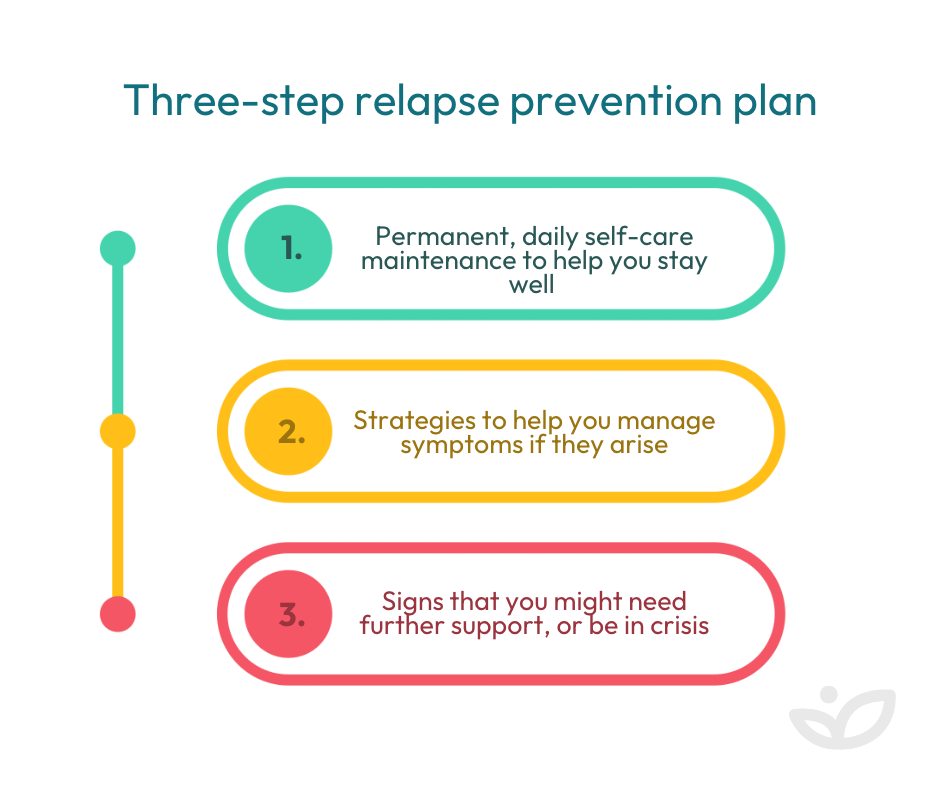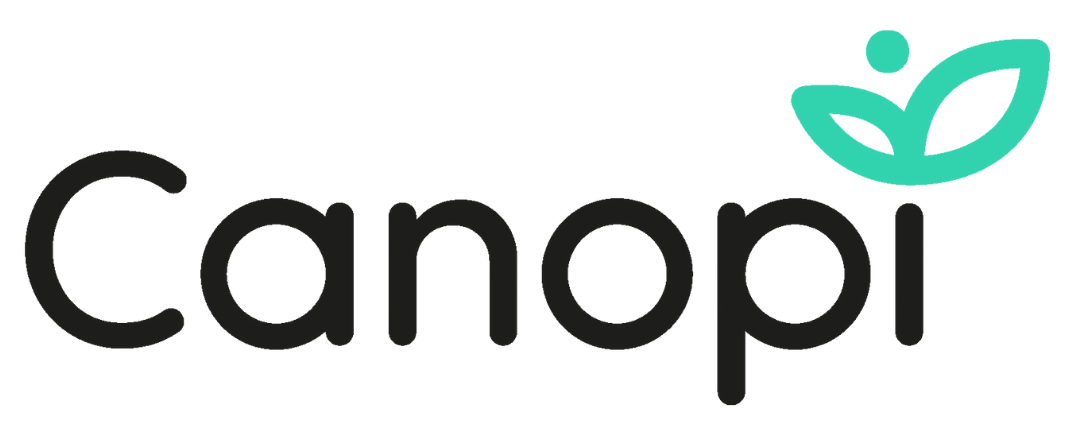What is self-care?
Nowadays, we are highly familiar with the term ‘self-care’ but what does it really mean? ‘Self-care’ can mean different things to different people but generally refers to essential practices which promote our mental and physical wellbeing.
For those with a history of mental health difficulties, a lack of self-care is usually the first sign of a mental health relapse.
That’s why it’s important to reflect on self-care strategies that work for us and use these to create a relapse prevention plan.
Be proactive to prevent relapse
It is vital that you create a prevention plan when you are feeling well. Preventing relapse is like brushing your teeth. Doing it once in a while is not enough to prevent tooth decay – you need to keep brushing every day.
Think of your plan as a three-step process

This should include:
- Permanent, daily self-care practices to help you stay well
- Coping strategies that help you manage symptoms if they arise
- Signs that you might need further support, or be in crisis
It is essential that your prevention plan is personal to you.
Get started today
If you’re struggling to get started, you can check out this helpful planning sheet and the list of recommended strategies from our Public Advisory Group (PAG) below.


Self-care practices recommended by our Public Advisory Group (PAG)
| Spend time in nature | Maintain healthy sleeping habits | Spend time with pets | Create a scrapbook of inspirational quotes |
| Create a ‘mental health box’ with meaningful objects | Maintain an active lifestyle | Listen to music or podcasts | Make a list of people in your support network |
| Play an instrument | Have a good breakfast | Take a bubble bath | Create a gratitude journal |
| Read a book | Draw or paint a picture | Try solo or guided meditation | Make time for the occasional treat |
What to do if you need further support or might be in crisis
If you think you are in crisis. It’s important to get help straight away.
Get more strategies and tips for your wellbeing:
- Keep up to date with the latest blogs from Canopi
- Access free self-help resources
- Find out more about Canopi and we can help.
Canopi’s Public Advisory Group (PAG)
Our PAG is made up of individuals who have sought mental health support through Canopi and help us to improve our services.

